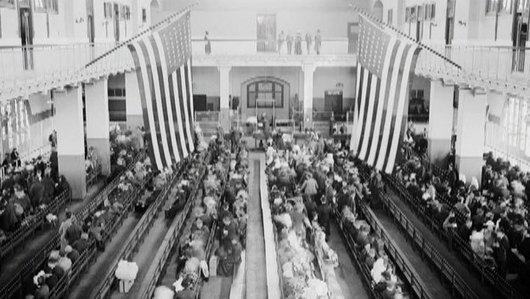January 1, 1892, Annie Moore, a teenager from County Cork, Ireland, was the first immigrant processed at Ellis Island. She had made the nearly two-week journey across the Atlantic Ocean in steerage with her two younger brothers. Annie later raised a family on New York City’s Lower East Side.
Some of America’s first settlers came in search of freedom to practice their faith. In 1620, a group of roughly 100 people later known as the Pilgrims fled religious persecution in Europe and arrived at present-day Plymouth, Massachusetts, where they established a colony. They were soon followed by a larger group seeking religious freedom, the Puritans, who established the Massachusetts Bay Colony. By some estimates, 20,000 Puritans migrated to the region between 1630 and 1640.
A larger share of immigrants came to America seeking economic opportunities. However, because the price of passage was steep, an estimated one-half or more of the white Europeans who made the voyage did so by becoming indentured servants. Although some people voluntarily indentured themselves, others were kidnapped in European cities and forced into servitude in America. Additionally, thousands of English convicts were shipped across the Atlantic as indentured servants.
– Click through for more –
Source: www.history.com
This article mentions the Chinese Exclusion Act of 1882 but fails to mention the Asian Exclusion act of 1924.
It also fails to mention that non-Europeans were not allowed to become citizens at many points in U.S. history.
People born in India were not allowed to become US citizens till 1946.
All Asians were allowed to become citizens in 1952 with the Walter–McCarran Act.
If we do not talk about citizenship rights when we talk about immigration, we are missing half of the discussion about dignity, respect and humanity.
Today’s social injustice issue is still about who is allowed to immigrate and become a citizen.
History shows that humans were allowed to (im)migrate to the U.S. for both religious and economic reasons.
Today’s (im)migrants move for reasons of survival (like the Irish did).
And they also move as war refugees, climate refugees, economic refugees and political refugees.
No human is illegal.


